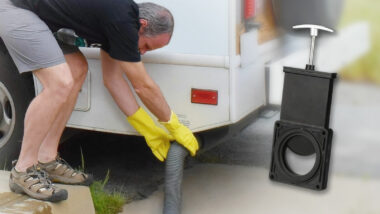Table of Contents Show
One of the benefits of having an RV is bringing an entire refrigerator and freezer with you. This means no more packing a cooler with ice, just to have it melt. Having an RV fridge doesn’t come without its frustrations, unfortunately.
One of those frustrations is having ice build-up, which affects its efficiency. Instead of continuously tossing spoiled food, let’s look at how you can prevent ice build-up and what to do if it happens.
What Causes Ice Build Up in RV Refrigerators?
RV refrigerators are a bit tricky. The back wall can quickly develop ice build-up in the freezer and refrigerator compartments. This is typically due to humidity and warm air entering the unit.
The moisture gathers at the coldest part of your RV refrigerator, the back wall, causing it to freeze. Eventually, it layers, giving you a thick crust of ice.
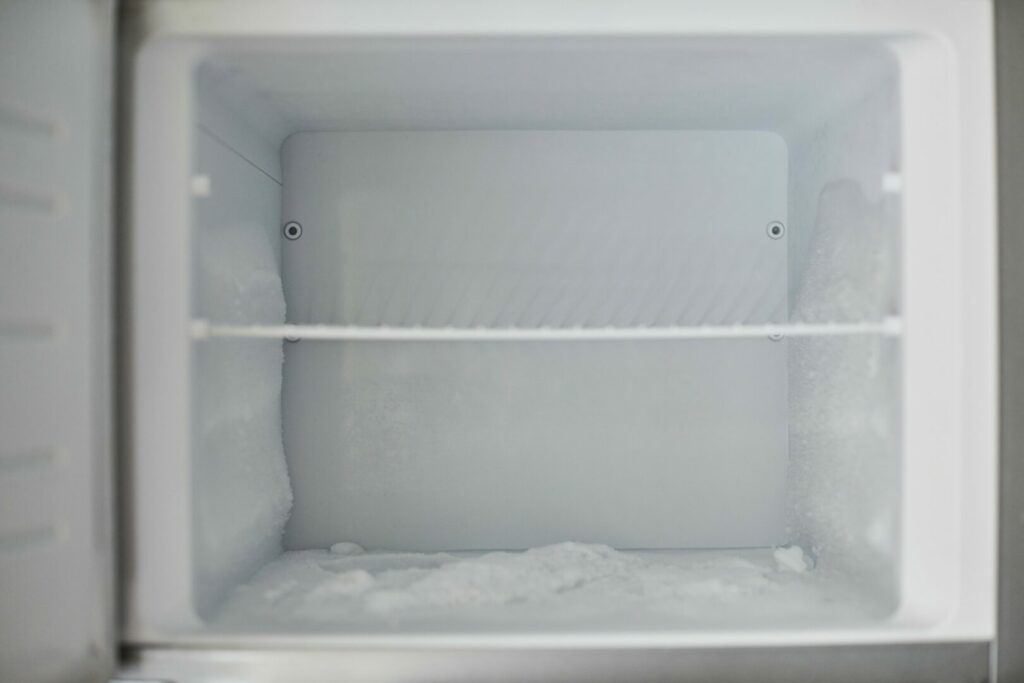
How RV Refrigerators Work
RV refrigerators have a complicated tubing system involving a solution of water, ammonia, and hydrogen gas. The heating of these chemicals with a propane flame causes the solution to boil and travel back to the condenser. While there, it cools down and keeps the refrigerator cold.
Some RVs have a residential-style fridge, and in those cases, they function like the one in your home. These units typically don’t freeze over, though they can. It’s important to remember that they require large amounts of power and aren’t ideal if you plan to spend time off-grid while RVing.
What To Do About Ice in Your RV Fridge
If you are discovering a layer of ice in your RV fridge, you need to defrost it. Once defrosted, your unit will function more efficiently. Once you’ve defrosted your fridge, you can then work on your ice build-up preventative measures.
To defrost your unit, place your food into a secondary cooler to keep it at a safe temperature. Open individual doors on your unit and let the back walls thoroughly defrost. Don’t forget to put towels down to collect the melted ice. To speed up the process, you can use a hairdryer on low.
Pro Tip: RV refrigerator giving you problems? We made an ultimate guide on How To Troubleshoot and Repair Your RV Refrigerator.
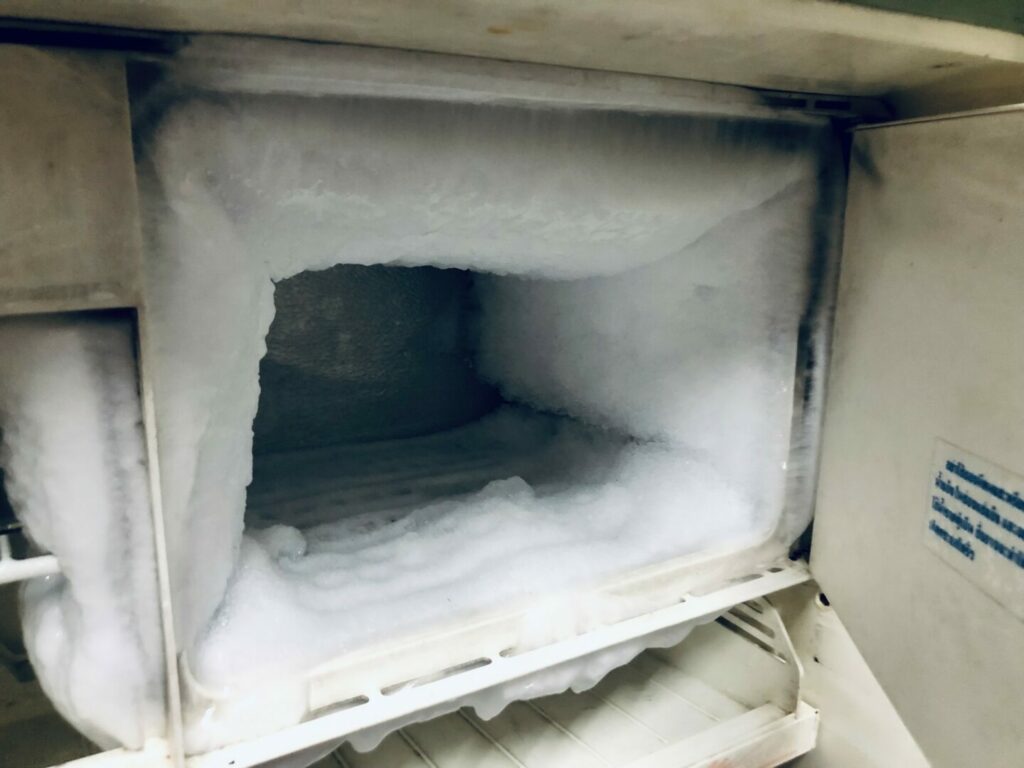
7 Tips To Keep Your RV Fridge Running Efficiently
No one wants to worry about their RV fridge while out enjoying their adventure. Here are a few tips to keep it running efficiently so you don’t get stuck troubleshooting your unit while tossing out spoiled food.
1. Check All Gaskets and Seals
A few times a season, take the time to check all gaskets and seals for your RV refrigerator. Open up any service doors present and ensure all hoses and seals are tight and have no leaks.
Do the “dollar test.” Close a dollar bill in the door of your refrigerator. If you can pull it out without damaging the dollar, your seal is not doing its job.

2. Make Sure the Door Completely Shuts
Often, the cause of ice build-up in an RV fridge is due to the doors not closing completely. In a sticks-and-bricks home, you can usually lightly close the refrigerator door, and it forms a tight seal keeping external air out.
Because of the rigors of going down bumpy roads, RV refrigerators need to latch closed. Before you walk away from your fridge, be sure you hear that satisfying click letting you know that you’ve successfully sealed the doors.
3. Don’t Pack It Too Full
We get it; RV refrigerators are not spacious. It can be tempting to pack it as tight as possible to avoid having to head back to the store halfway through your trip.
Unfortunately, packing your RV refrigerator too tightly is a recipe for your frozen foods to be thawed and your refrigerated items to spoil. RV refrigerators need air circulation to keep your food cold.
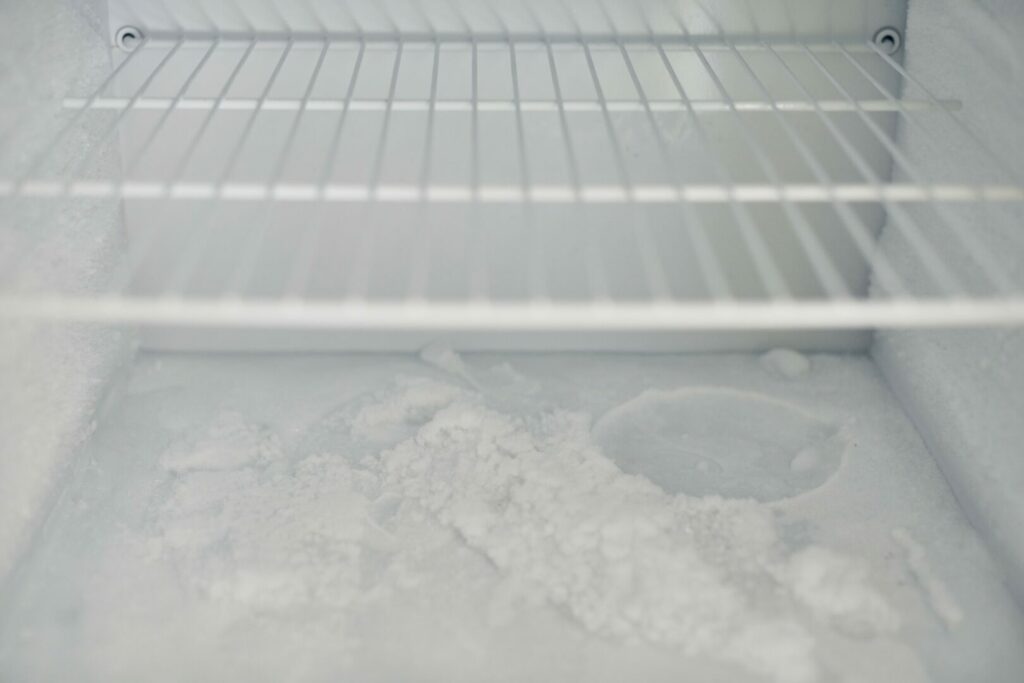
4. Use RV Refrigerator Fans
Additionally, there are other things you can do to keep cold air circulating in your fridge.
You can use special fans in your refrigerator to move the cold air around the unit versus sitting stagnant in one spot. Place the fans near the coils for the best results.
Pro Tip: If the temperature in your refrigerator is off, you might need one of these Best RV Refrigerator Fans to Keep Your Food Cold.
5. Make Sure Your RV Is Level
Remember how we said RV refrigerators are finicky? One of their quirks is needing to be level. Due to their reliance on propane, the components will not function properly if unlevel as the propane will not flow properly.
If your fridge is not cooling consistently, check to see if you are level before getting too far into your troubleshooting.
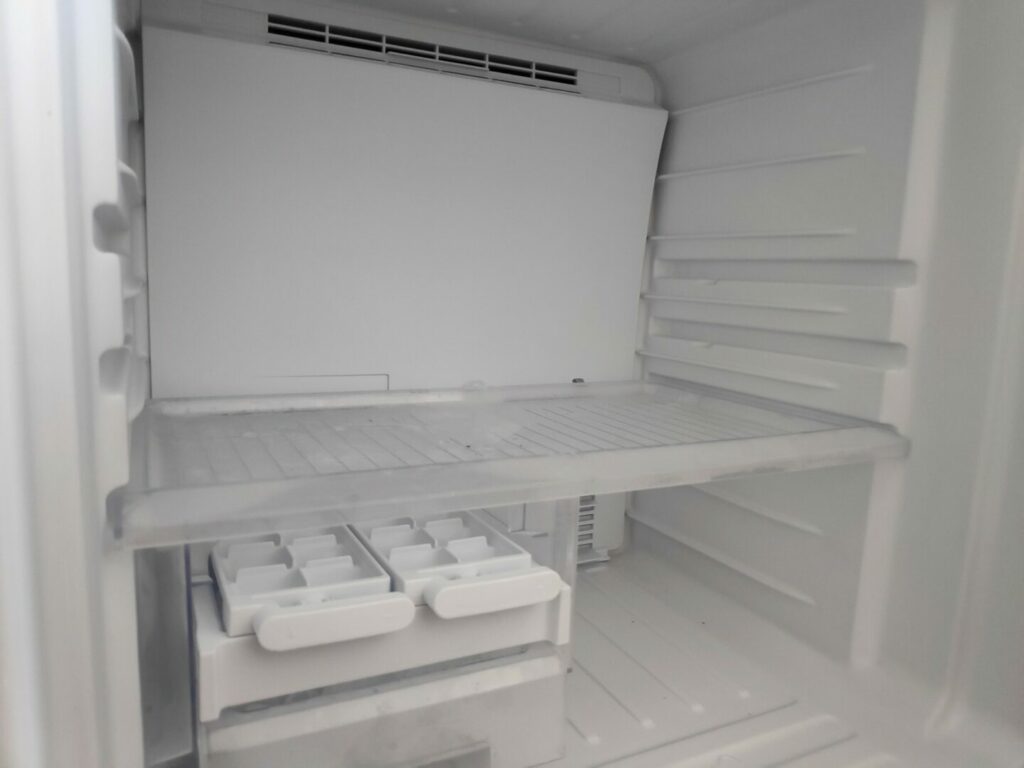
6. Defrost Regularly
The back of the freezer should stay below freezing to give enough cold air to your food. When ice builds up, it can’t adequately cool your food.
You will need to defrost your RV refrigerator to ensure it continues to work correctly. You may need to defrost your unit as often as every month if using your RV full time.
7. Regularly Clean and Check Exterior Vent
When dirt and debris clog your vents, it makes it difficult to provide proper circulation. The warm air from the cooling process will have nowhere to go causing your fridge to be very inefficient.
This can cause your fridge to work extra hard and can become dangerous. Blocked vents can eventually cause fires if not handled properly. Clean your exterior vent each trip to help keep your fridge running safely and efficiently.
A Little Preventative Maintenance Goes a Long Way
As with most things in life, preventative measures are easier than dealing with a problem. Performing routine maintenance and having good usage practices regarding your RV fridge means less time fixing it than having fun at your campsite.
Have you had a frustrating experience with your RV refrigerator?






